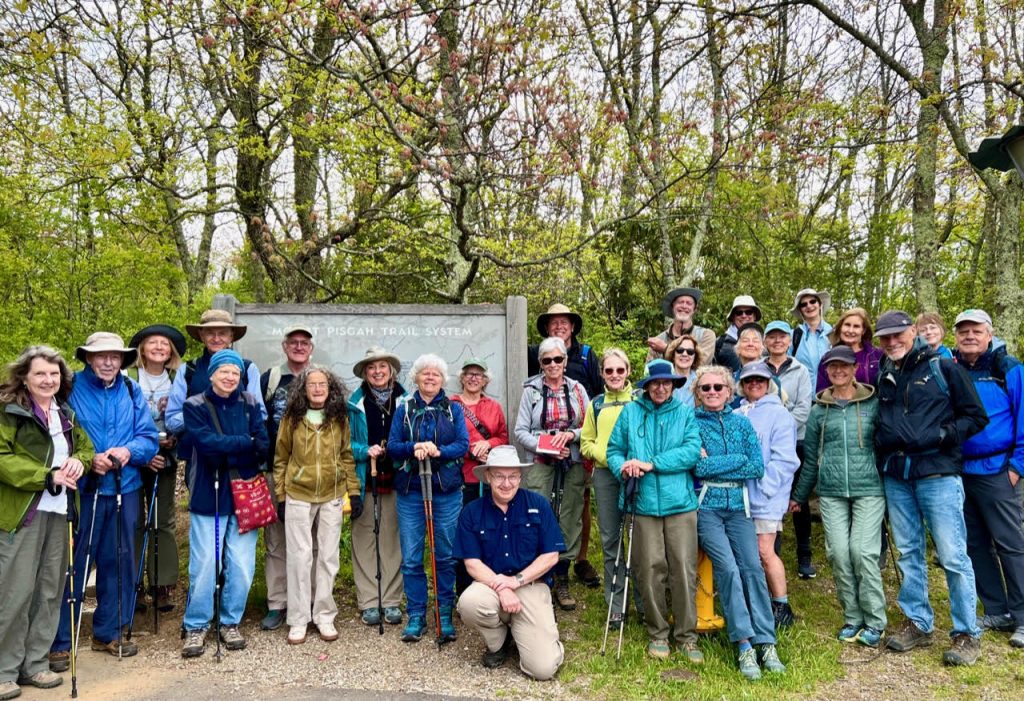Category
Chilly morning temperatures at 5000 feet did not deter the 28 BRNN members joining our high-elevation wildflower walk on Tuesday May 23rd. Ably led by guides Lou Dwarshuis, Marilyn Kolton, and Randy Richardson, our gang set off to explore the trails leading from the Pisgah Inn to the site of the former Buck Springs Lodge. On the sunnier, drier Buck Springs trail we saw the first of the late spring/summer flowers, with highlights including blooming Speckled Wood Lily, Wild Sarsaparilla, Wood Betony, Catawba Rhododendron, Mountain Laurel, Canada Mayflower, Wild Lily of the Valley and Umbrella Leaf. The shadier, wetter Campground trail yielded the last vestiges of a number of species of trillium (Painted, Red Wake Robin, Large-flowered, and Vasey’s) including some examples with four and five leaves! And a small cadre of committed plant nerds stopped along the Parkway on the way home to see the rare Small-flowered Yellow Lady’s Slipper.
Our group included some keen birders, and they recorded some very interesting bird species, including:
Selected photos from the outing are provided below:
